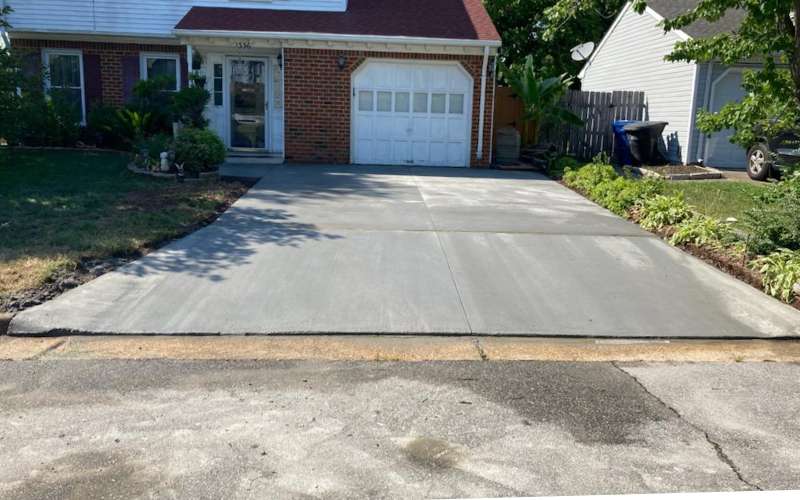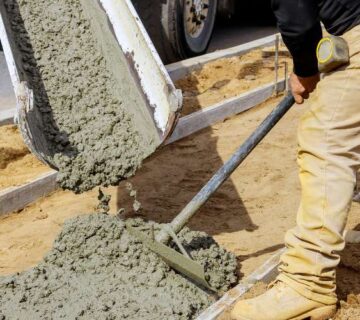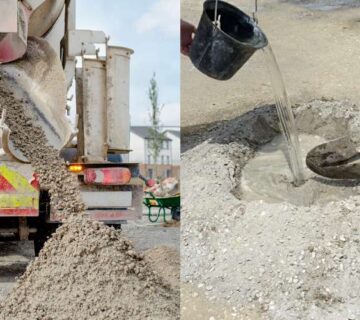Concrete driveways are an essential part of many homes, but they often don’t last as long as they should. If you’re wondering how to increase the lifespan of a concrete driveway, this post will give you the answers. By taking a few simple steps, you can avoid costly repairs and enjoy a durable, long-lasting driveway. Whether you’re dealing with cracks, wear, or weather, we understand the challenges that come with maintaining your concrete driveway.
Essential Tips for Extending the Life of Your Concrete Driveway
Taking care of your concrete driveway can save you time and money in the long run. In this section, we’ll break down the best practices to extend its lifespan and keep it looking great for years.
1. Regular Cleaning and Maintenance
To increase the lifespan of a concrete driveway, start with regular cleaning. Over time, dirt, grime, and debris accumulate on the surface, leading to stains and possible damage. By sweeping and washing the driveway with a pressure washer, you remove harmful materials. Ensure the driveway stays free of oil spills and other chemicals that can seep into the concrete and cause deterioration.
2. Sealing Your Driveway
Sealing is one of the most effective ways to protect your concrete driveway from damage. A high-quality sealant forms a barrier against moisture, chemicals, and UV rays. This process is simple but should be done every two to three years to increase the lifespan of your concrete driveway. The right sealant can prevent cracks and reduce the wear and tear caused by weather conditions, especially in areas with extreme temperatures.
3. Repair Cracks Immediately
Cracks are one of the most common issues with concrete driveways. If left untreated, small cracks can expand, leading to more significant problems. It’s essential to repair cracks as soon as they appear. You can use a concrete patching compound to fill in small cracks or hire a professional for more extensive repairs. This simple step will increase the lifespan of your concrete driveway by preventing further damage.
4. Proper Drainage
Poor drainage is a common reason why concrete driveways fail prematurely. Water can seep into the surface, freeze, and cause cracks. To avoid this, ensure that your driveway has proper drainage. Sloping the driveway away from your home and installing gutters can help direct water flow away from the concrete. This will significantly extend the driveway’s life by reducing water-related damage.
5. Avoid Heavy Loads
While concrete is a durable material, heavy loads can weaken it over time. Parking large vehicles, such as RVs or trucks, on your driveway can create stress points that lead to cracks. To increase the lifespan of your concrete driveway, avoid parking heavy vehicles in the same spot repeatedly. If necessary, consider reinforcing your driveway to support heavier loads.
6. Protect Against Harsh Weather
Weather conditions play a significant role in the wear and tear of your concrete driveway. In colder climates, ice and snow can freeze on the surface, causing cracks when the water expands. Use snow blowers instead of shovels to avoid damaging the concrete, and apply ice melt carefully to prevent chemical damage. In warmer climates, high temperatures can cause the concrete to expand and crack, so applying a heat-resistant sealant is a good preventive measure.
7. Resurfacing When Necessary
Over time, even well-maintained concrete driveways will show signs of aging. Resurfacing is an excellent option for refreshing the appearance of your driveway without the need for a complete replacement. This process involves applying a new layer of concrete over the old surface, giving it a fresh look and strengthening its structure. Resurfacing can increase the lifespan of your concrete driveway by addressing surface imperfections and adding an extra layer of protection.
8. Use Control Joints
Control joints are strategically placed cracks that allow the concrete to expand and contract without causing damage. They help prevent random cracking by creating weak points where the concrete can break under pressure. Ensuring that control joints are correctly placed during the installation of your driveway can significantly increase its lifespan.
9. Regular Inspections
Regular inspections of your concrete driveway can help you identify issues before they become major problems. Look for signs of cracks, pooling water, or surface damage. Early detection allows for quick repairs, which ultimately prolongs the driveway’s life.
Protect Your Investment with Proper Driveway Care
Maintaining your concrete driveway is key to avoiding costly repairs and keeping it in great condition for years. By following the steps outlined in this guide, you’ll know how to increase the lifespan of your concrete driveway effectively. For expert advice or assistance with driveway maintenance, contact us today. We’re here to help you protect your investment with the right solutions.





No comment